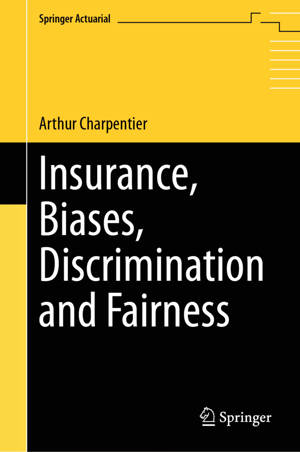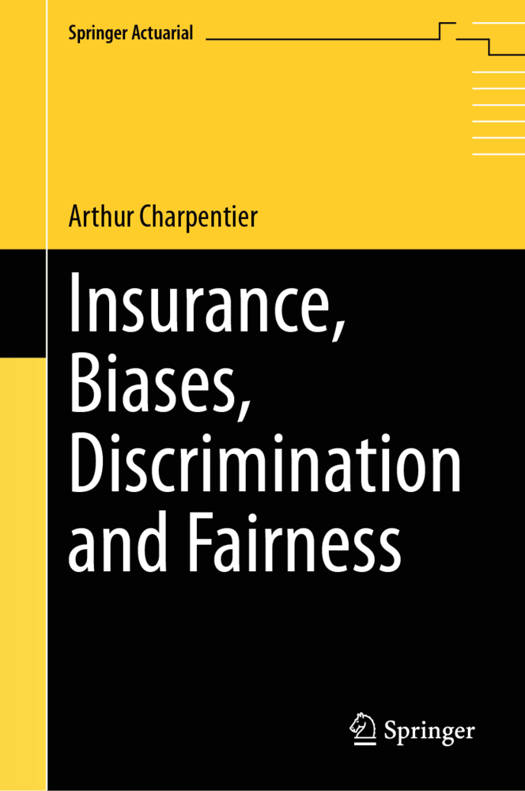
En raison d'une grêve chez bpost, votre commande pourrait être retardée. Vous avez besoin d’un livre rapidement ? Nos magasins vous accueillent à bras ouverts !
- Retrait gratuit dans votre magasin Club
- 7.000.000 titres dans notre catalogue
- Payer en toute sécurité
- Toujours un magasin près de chez vous
En raison de la grêve chez bpost, votre commande pourrait être retardée. Vous avez besoin d’un livre rapidement ? Nos magasins vous accueillent à bras ouverts !
- Retrait gratuit dans votre magasin Club
- 7.000.0000 titres dans notre catalogue
- Payer en toute sécurité
- Toujours un magasin près de chez vous
Description
This book offers an introduction to the technical foundations of discrimination and equity issues in insurance models, catering to undergraduates, postgraduates, and practitioners. It is a self-contained resource, accessible to those with a basic understanding of probability and statistics. Designed as both a reference guide and a means to develop fairer models, the book acknowledges the complexity and ambiguity surrounding the question of discrimination in insurance. In insurance, proposing differentiated premiums that accurately reflect policyholders' true risk-termed "actuarial fairness" or "legitimate discrimination"-is economically and ethically motivated. However, such segmentation can appear discriminatory from a legal perspective. By intertwining real-life examples with academic models, the book incorporates diverse perspectives from philosophy, social sciences, economics, mathematics, and computer science. Although discrimination has long been a subject of inquiry in economics and philosophy, it has gained renewed prominence in the context of "big data," with an abundance of proxy variables capturing sensitive attributes, and "artificial intelligence" or specifically "machine learning" techniques, which often involve less interpretable black box algorithms.
The book distinguishes between models and data to enhance our comprehension of why a model may appear unfair. It reminds us that while a model may not be inherently good or bad, it is never neutral and often represents a formalization of a world seen through potentially biased data. Furthermore, the book equips actuaries with technical tools to quantify and mitigate potential discrimination, featuring dedicated chapters that delve into these methods.
Spécifications
Parties prenantes
- Auteur(s) :
- Editeur:
Contenu
- Nombre de pages :
- 483
- Langue:
- Anglais
- Collection :
Caractéristiques
- EAN:
- 9783031497827
- Date de parution :
- 14-05-24
- Format:
- Livre relié
- Format numérique:
- Genaaid
- Dimensions :
- 163 mm x 238 mm
- Poids :
- 1002 g

Les avis
Nous publions uniquement les avis qui respectent les conditions requises. Consultez nos conditions pour les avis.






